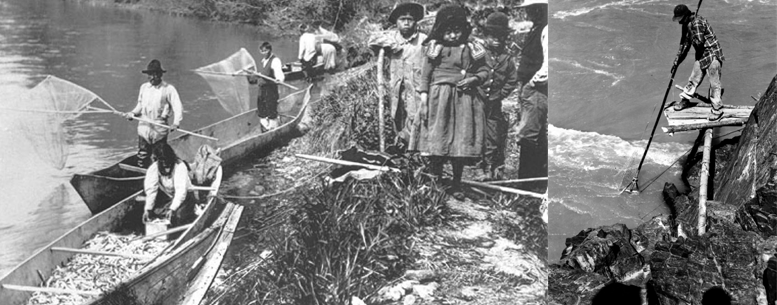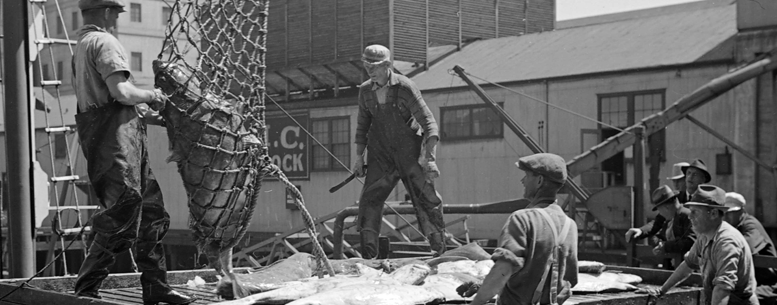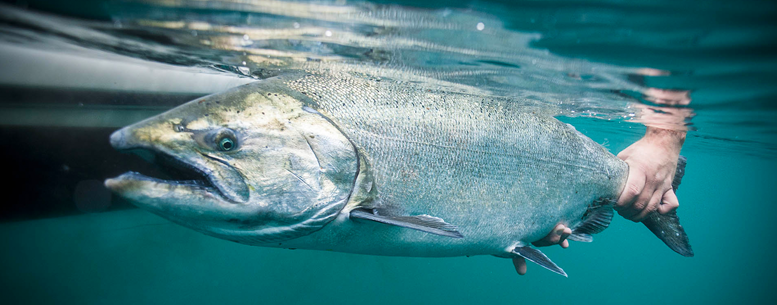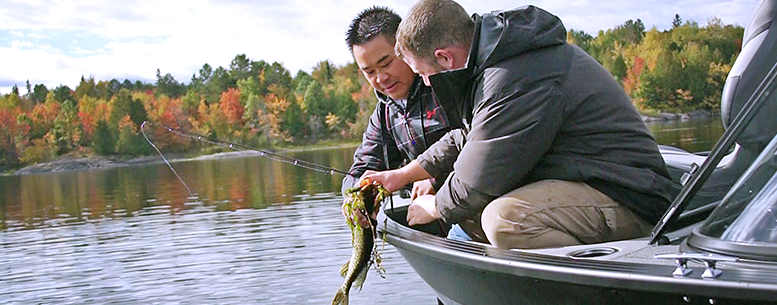First Nations Fishing

We all love fishing, and some of us will claim that the sport runs through our blood and live by the mantra Eat, Sleep, Fish.
But, some of our neighbours have a bigger claim to this sentiment than others.
Beginning approximately 12000 years ago – probably longer – First Nations people developed a familiarity with fish so intimate that they were able to alter their catch and cook practices based on the lake, river, or stream that they caught from. They understood where the fish were coming from, where they were heading, how long they spent in the ocean vs river ways, and how their travels impacted their biological makeup.

Courtesy – https://indigenousfoundations.arts.ubc.ca/
They used a combination of traps, spears, harpoons, weirs, and a vast variety of netting techniques. Their skills were so effective that fish continued to come back year after year despite continually coming home with enough fish to last through the winter and establish a thriving fish-based economy.
Firmly attached to this knowledge is respect.
Ancient traditions teach that every animal was once a person, and that each fish is part of a lineage. Respecting this lineage and allowing some fish to escape captivity and return home was just one of the ways First Nations ensured that the lineage would continue. This level of resource management continues to rival anything that Europeans have been able to introduce, even today.
European settlers saw the success of First Nations and quickly followed suit, introducing newer technology to assist in their fishing success. But, their passion for resource management took a little more time.

The first hurdle was the introduction of licenses. The big picture aimed to regulate the volume and sales of fishing – which is a good thing. But, the smaller pieces resulted in Indigenous people’s ability to fish being stifled in favour of settler Canadians for economic reasons. The two groups worked together, but with settler Canadians leading the way it didn’t take long for lineages to begin to break.
Fast forward to the early 1900s colonial engines brought more mobility to independent fish harvesters. As fishing increased, stocks in rivers, estuaries, and near-shore waters became more scarce.
By the end of WWII subsidies and loans propelled the addition of better engines, hydraulics, larger hulls, and the use of radar, sonar, and radio. This put even more pressure on stocks.
Obviously things couldn’t continue like this forever. Luckily, 2 things happened.
The 1970’s brought about a particular focus on resource management. Fisheries began to produce more, and fishing techniques began to conserve more. This is primarily due to conservation quotas, management of not only territories, but down to individuals, and advisory committees having a much more prominent voice.

The second big, positive impact occurred much earlier. Since 1850 – just before Canada’s Confederation – the government has been negotiating treaties with First Nations people. An important part of these treaties recognizes First Nations’ Inherent Rights to fish and exercise governance over their traditional fisheries. These rights have been enshrined in the Canadian Constitution in 1982. Today, First Nations representatives must be consulted in any discussions involving fisheries and ocean management or water source protection.
There’s still far too much illegal fishing going on and a whole new slew of environmental factors that are threatening fish populations, but the combination of recent attention and innovation from settler Canadians have brought us very far in the right direction.
But, without generation after generation of pressure from First Nation groups to do the right thing and their thousands of years of positive practices and setting examples we may not have even had the chance to turn things around.

Next time you find yourself reeling a gigantic fish, think about the people who fought so hard to make sure that you’re able to. Also think about taking a great picture and releasing it.
Appreciate your freedom and ability to Eat:Sleep:Fish
Yours In Boating,